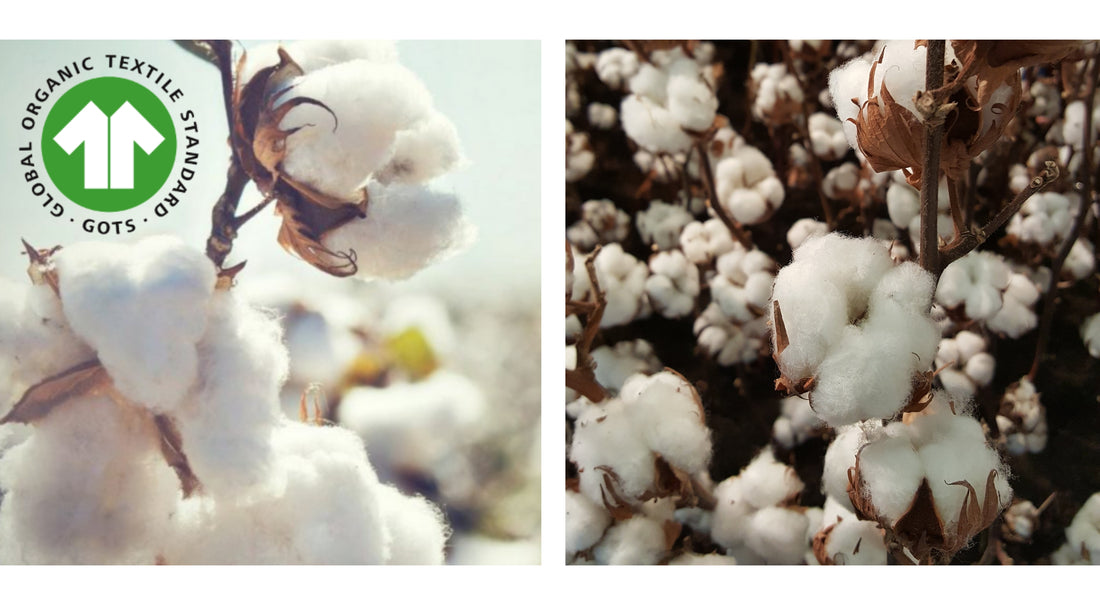If you’ve ever had to choose between a cotton T-shirt and an organic cotton T-shirt, you might have wondered what's so different about them. While they’re both made from the same plant fibre, there is plenty that polarises these two options. Let’s take a look at why organic cotton clothing matters.
The ethics of farming cotton
At Etiko, we’re all about ethics. That means we prioritise sustainability over profits. And when we say sustainability, we mean the sustainable care of people, animals and the planet. So what’s that got to do with cotton?
The cotton growing industry has a long and well-documented history of exploitation. And while it’s true that slave labour is now illegal, modern slavery still exists.
According to antislavery.org, there are seven primary forms of modern slavery. These include child labour, forced labour and debt bondage (when impoverished people are loaned money and then forced to work to repay that debt). These three forms of modern slavery are all associated with cotton production.
Because approximately 99% of the world’s cotton production happens in developing countries (with two-thirds grown in India and China) by some of the world’s poorest people, exploitation is rife.
Children as young as five are frequently involved in growing, picking or processing cotton. And in India, the suicide rates of debt-riddled cotton farmers growing genetically modified cotton have been well documented over the last decade or two.
Then, there’s the use of insecticides on cotton farms.
Organic cotton farming practices explained.
Cotton farming accounts for approximately 16 percent of global pesticide use—more than any other crop worldwide. The use of insecticides impacts local wildlife populations, pollutes waterways and drinking sources, and impacts the people spraying the crops or living nearby.
According to World Vision International, child labourers may spray toxic pesticides or work in the cotton fields after the spraying. This exposes the children to dangerous nerve agents and can cause “tremors, nausea, weakness and in serious cases paralysis and death. Studies also show that children who spray pesticides in cotton fields experience blurred vision, extreme dizziness, headaches, and difficulty concentrating.”
If that’s not bad enough, there’s also the water use involved in cotton production to consider.
Cotton is a thirsty crop. According to WWF, the production of a regular cotton t-shirt uses 2,700 litres of water. That’s enough water for a person to drink for 900 days! But if the shirt is made from organically grown cotton, only 243 litres of water is required. Why such a big difference? Mainly due to soil health.
Soil that’s constantly sprayed with pesticides and insecticides becomes devoid of microbes and life (like worms, that help to aerate soil). Compare that to organic farming principles, and the soil is much healthier because organic matter (like compost) is being added to it. That keeps the worms and microbes happier, meaning the soil can soak up rainwater and hold onto it.
When considering all those issues – slave labour, dangerous chemicals, depletion of the earth’s soils and water consumption in a heating planet – we reckon it’s pretty safe to say that cotton farming can be a nasty business. That’s why we only use organic cotton grown by Fairtrade-certified farmers.
By using certified organic cotton grown under the Fairtrade certification scheme, we can trace our supply chains right back to the organic cotton seed. We also know that farmers received a fair price for their cotton—regardless of market fluctuations—and no child labour was involved.
Having said that, we now plan to offer consumers clothing made with regenerative organic cotton. There is nothing wrong with organic cotton …we just think that, we, including our supply chain, could do better.
Regenerative agriculture aims to restore soil and carbon balances to remove emissions from the atmosphere, whereas organic processes don’t contain this as a criterion nor as a pillar of the practice. About 12% of the farmers we currently source our cotton from are certified Regenerative Farmers …. we want to get that to 100% as soon as possible.
But the question is: now that you understand the difference between cotton and organic cotton apparel, will you make the switch?


Leave a comment